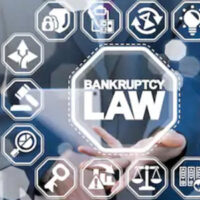What Happens to Non-Exempt Property in Chapter 13 Bankruptcy?

If you have had any family members or friends who filed for bankruptcy, you may only know about Chapter 7 bankruptcy, which is a type of liquidation bankruptcy. In a liquidation bankruptcy, the debtor can claim a range of assets as “exempt” under the Florida Statutes, which means those exempt assets will not be liquidated and the debtor can keep them. All non-exempt assets, however, will be liquidated as part of the bankruptcy case. Due to this process, many individuals who are planning to file for bankruptcy have concerns about which of their assets will be exempt and which will not. Yet if you are planning to file for Chapter 13 bankruptcy — rather than Chapter 7 bankruptcy — then none of your assets will be liquidated.
Yet even in a Chapter 13 case, Florida’s bankruptcy exemptions can be relevant and important to your case. What happens to exempt and non-exempt property in a Chapter 13 bankruptcy? A West Palm Beach bankruptcy lawyer at Kelley, Fulton, Kaplan & Eller can explain in more detail.
No Assets Are Liquidated in a Chapter 13 Bankruptcy Case
It is important to understand that Chapter 13 bankruptcy is not a type of liquidation bankruptcy. As such, no assets are liquidated — you can keep all of your property. Instead, it is a type of reorganization bankruptcy that involves making regular payments according to the terms of a repayment plan. This is where Florida’s exemptions become relevant.
Exemptions Can Affect the Amount of Your Payments in Your Repayment Plan
As part of your Chapter 13 bankruptcy case, you will propose a repayment plan that will last, typically, three to five years. During that time, based on the amount of payments, you will repay all of your secured and priority creditors in full. In general, unsecured non-priority creditors should receive at least the amount they would have if the debtor had filed for Chapter 7 bankruptcy and non-exempt assets had been liquidated.
With that in mind, and taking into account the Chapter 13 debtor’s income and expenses, Florida’s exemptions can play a role in determining the amount of the debtor’s regular payments. Non-exempt assets will not be liquidated, but exemptions can play a role in determining whether the creditors will receive what they would have in a liquidation bankruptcy, and thus what unsecured nonpriority creditors will need to be repaid according to the terms of the repayment plan.
Contact Our West Palm Beach Bankruptcy Lawyers Today
Many individual debtors come to the bankruptcy process without being aware of Chapter 13 bankruptcy and how it works. Indeed, many debtors have only heard of Chapter 7 bankruptcy and assume that some of their assets will need to be liquidated as part of their bankruptcy case, yet this is not how Chapter 13 works. If you have questions, or if you want to begin taking steps to file for Chapter 13 bankruptcy, you should get in touch with one of the experienced West Palm Beach bankruptcy attorneys at Kelley, Fulton, Kaplan & Eller as soon as possible. One of our lawyers can talk with you today to learn more about your debt and to advise you about bankruptcy options in South Florida. Contact us today for more information about how we can assist you with your bankruptcy case.
Sources:
leg.state.fl.us/statutes/index.cfm?App_mode=Display_Statute&URL=0200-0299/0222/0222.html
law.cornell.edu/uscode/text/11



